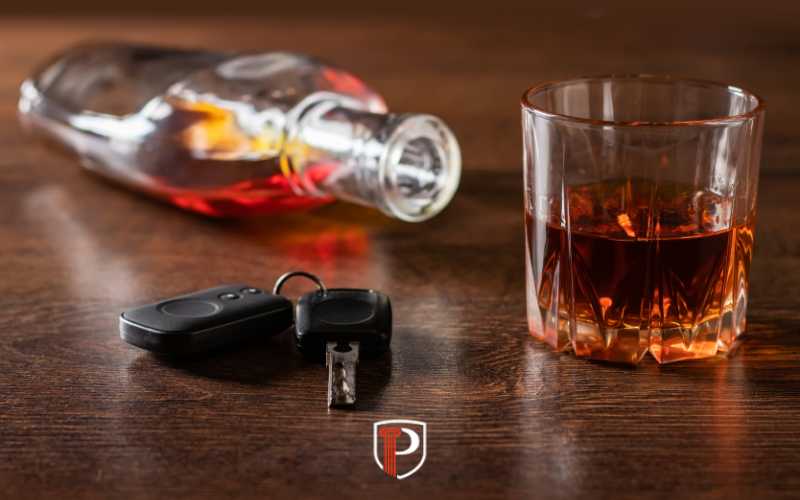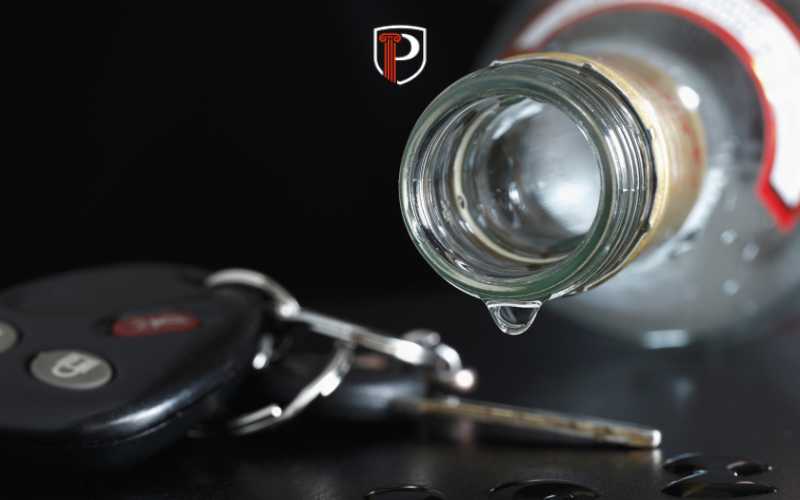Reinstating your driver’s license after a DUI in Illinois can be a complicated process. Depending on the severity of the offense and whether it's your first DUI, you may face several legal hurdles, including fines, hearings, and alcohol education programs. Understanding the steps required and navigating the necessary paperwork is crucial to getting back on the road. Seeking professional legal guidance can make this process smoother and increase your chances of a successful reinstatement.
If you're looking to get your license back, having the right support is essential. Contact an experienced license suspension attorney in DuPage County today at (708) 274-4499 to help guide you through the reinstatement process, protect your rights, and get you back on the road as soon as possible.
How Does a DUI Affect Your Driving Privileges in Illinois?
A DUI conviction in Illinois can have significant consequences for your driving privileges. Upon being charged with a DUI, you may face an automatic suspension of your driver's license, even before your case is resolved. This is known as a statutory summary suspension, which can be triggered if you refuse or fail a chemical test like a breathalyzer.
If you are convicted of DUI, your license may be revoked, which is more severe than a suspension. Revocation means that your driving privileges are taken away indefinitely, and you'll have to go through a reinstatement process to regain them. For a first-time DUI offense, the period of license revocation is typically one year, but it increases with multiple offenses. Additionally, if you are convicted of aggravated DUI or other serious charges, the revocation period can be longer.

During a suspension or revocation, you may be eligible for a restricted driving permit (RDP) or a Monitoring Device Driving Permit (MDDP), which allows limited driving privileges. These permits often require the installation of a Breath Alcohol Ignition Interlock Device (BAIID) in your vehicle, which prevents you from starting the car if alcohol is detected on your breath.
The impact on your driving privileges varies based on factors like prior DUI offenses, blood alcohol concentration (BAC), and whether you caused an accident.
Steps to Reinstate Your Driver’s License After a DUI
Reinstating your driver’s license after a DUI in Illinois requires several steps to meet state requirements. Here’s what you need to know:
Determine Your Eligibility
The first step is to determine if you’re eligible to reinstate your drivers license. After a DUI-related license revocation, you'll need to serve the mandatory suspension period, which typically ranges from one year for a first offense to five years or more for repeat offenders. Check with the Illinois Secretary of State to confirm when you can begin the reinstatement process.
Complete All Required Programs
Before applying for reinstatement, you must complete all court-ordered programs and requirements. This may include a DUI risk education class, alcohol or drug treatment, and attending a Victim Impact Panel (VIP). The specifics will depend on your evaluation level, which could be minimal, moderate, significant, or high risk.
Address Financial Obligations
You will need to pay all associated fines, fees, and court costs related to your DUI case. This includes both the costs to reinstate your license and those related to your DUI conviction. In addition, if a BAIID device was required during a restricted driving period, you must ensure all associated payments are made.
Prepare for the Reinstatement Hearing
Once eligible, you must request a reinstatement hearing with the Illinois Secretary of State. There are two types of hearings: informal and formal. Informal hearings are for first-time offenders with minimal risk, while formal hearings are for repeat offenders or those with more serious charges. You will need to provide proof of completion of required programs, evidence of financial responsibility (such as an SR-22 certificate), and any other requested documentation.
At the hearing, you must demonstrate that you’ve addressed your alcohol or substance use issues, complied with all requirements, and are committed to safe and legal driving. If the hearing officer approves your reinstatement, you’ll receive instructions on how to proceed, including paying a reinstatement fee.
Reinstating your license after a DUI in Illinois is a detailed process that requires careful attention to deadlines and requirements.
Common Challenges Getting Your License Back After a DUI
Reinstating your driver's license after a DUI conviction in Illinois can be a complex process with several challenges. Here are some common obstacles people face and tips for overcoming them:
- Incomplete or Insufficient Documentation: Missing or incomplete documentation, such as proof of completed treatment programs or missing evaluation forms, can delay your reinstatement. Keep track of all required paperwork and review your documentation thoroughly before your hearing to ensure everything is complete.
- Failed Drug and Alcohol Screenings: You may be required to undergo drug and alcohol screenings to prove sobriety. Failing these tests or missing them can hurt your chances of reinstatement. Attend all scheduled screenings and maintain communication with your treatment provider.
- Financial Barriers: Fines, fees, and costs associated with DUI convictions, reinstatement fees, and the installation of a Breath Alcohol Ignition Interlock Device can add up, making it financially difficult to reinstate your license. Explore payment plans or financial assistance programs if available.
- Unsuccessful Reinstatement Hearing: The reinstatement hearing is critical, and failing to present a strong case for your eligibility can result in a denial. Prepare thoroughly for your hearing. Review past decisions and ensure that you have documented your compliance with all requirements. Consider consulting experienced attorneys who handle license issues to help you navigate the process and present your case effectively.
- Lengthy Wait Times: The DUI reinstatement process, including scheduling hearings and waiting for decisions, can be lengthy and frustrating. Plan for delays and stay organized. Remain patient and persistent, and follow up regularly with the Illinois Secretary of State's office to track your case progress.

By staying organized, being proactive, and preparing thoroughly, you can navigate these challenges and increase your chances of successfully reinstating your driver’s license after a DUI.
How Our Firm Can Help
Navigating the process of reinstating your driver’s license after a DUI conviction can be complex and challenging. Working with a law firm that focuses on license issues can significantly improve your chances of a successful reinstatement. Here’s how a law firm can assist you:
- Guidance Through the Legal Process: A law firm can provide advice on the legal requirements and procedures involved in reinstating your license. They will help you understand the necessary steps, including completing required programs and attending administrative license hearings, ensuring that you meet all legal obligations.
- Assistance with Documentation: Proper documentation is crucial for a successful reinstatement. A law firm can help you gather and organize the necessary paperwork, such as proof of completed treatment programs, financial responsibility documents, and evidence of compliance with court orders.
- Preparation for the Reinstatement Hearing: The reinstatement hearing is a critical component of the process. A law firm can prepare you for the hearing by advising you on what to expect and building a case that supports your eligibility for reinstatement. Their experience in handling similar cases can enhance your presentation and increase your chances of a favorable outcome.
- Navigating Financial and Administrative Challenges: Financial barriers and administrative hurdles can complicate the reinstatement process. A law firm can assist with managing fees, understanding financial obligations, and dealing with any administrative issues that arise.
- Representation and Advocacy: Having legal representation means you have a professional advocate working on your behalf. A law firm can negotiate with the Illinois Secretary of State’s office, address any issues that arise, and ensure that your rights are protected throughout the process.
By leveraging their experience and resources, a law firm can streamline the reinstatement process, reduce the risk of delays or denials, and increase your likelihood of regaining your driving privileges.
Navigate the Reinstatement Process with Professional Help
Reinstating your driver’s license after a DUI in Illinois can be a challenging process, but with the right guidance, you can successfully navigate it. Ensuring all requirements are met and presenting your case effectively is key to getting back on the road.
Need help reinstating your license? Contact our experienced Illinois license lawyers today to get the support you need and take the next steps toward restoring your driving privileges.
